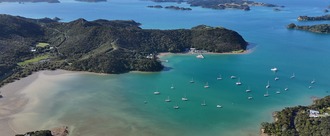-
Stop early labelling in primary school reports (2026)From 2026, primary schools will report children’s learning using national labels: Emerging · Developing · Consolidating · Proficient · Exceeding For children aged 5–7, this approach is developmentally inappropriate. Learning at this age develops unevenly, at different rates for different children, and early labels often reflect developmental readiness and support needs rather than true understanding or potential. This matters because: • Early learning is non-linear Children aged 4–7 show wide, normal variation in attention, language, memory, and self-regulation. Progress does not happen in neat stages. • The labels describe support levels, not learning ability Terms like Emerging and Developing explicitly reference the amount of support a child needs, which risks equating support needs with lower ability. • Children within the normal developmental range are labelled Many children will sit in Developing or Consolidating simply because their learning is still forming, not because they are behind. • “Developing” and “Consolidating” are easily read as deficit For whānau, these labels are easily interpreted as “not meeting expectations”, even when development is typical. • Neurodivergent children are particularly disadvantaged These children may understand concepts but struggle to demonstrate learning in standardised ways due to differences in communication, processing speed, regulation, or anxiety. • Wellbeing and confidence are affected Early labelling can undermine confidence, increase stress, and discourage children from taking learning risks. • This approach has caused harm before New Zealand previously moved away from national benchmarking systems after evidence showed they narrowed learning and negatively affected wellbeing. Early learning should focus on growth, relationships, and support, not categorising children on a national scale.541 of 600 SignaturesCreated by Kate Muir
-
Protect Te Tiriti in EducationAotearoa should be a place where everyone, regardless of their background, is respected and part of a vibrant connected community. Where everyone feels a sense of belonging and knows their children will feel the same. Te Tiriti o Waitangi is the blueprint to making this future a reality, it guides us to live peacefully and respectfully together so that everyone can thrive. It is vital that our children learn the importance of honouring Te Tiriti o Waitangi and continue fostering respectful and reciprocal relationships between tāngata whenua and tāngata Tiriti (people of Te Tiriti). Education is where Te Tiriti o Waitangi is made real for every generation. Section 127 of the Education and Training Act ensures that schools, early learning services and tertiary institutions give effect to Te Tiriti — shaping how our children learn about identity, belonging, and partnership. Removing this section is not a technical change — it is a step backwards. It erases the Crown’s responsibility to honour Te Tiriti in the one place every child in Aotearoa passes through: our education system. Te Tiriti is not an add-on; it is the foundation of how we work together as iwi and Crown for the wellbeing of all tamariki. We call on the Government to retain Section 127 and reaffirm its commitment to Te Tiriti o Waitangi in education.24,086 of 25,000 SignaturesCreated by National Iwi Chairs Forum
-
Oppose the Amendments to the Marine and Coastal Area ActWe oppose the amendments because they will: • Override Treaty principles that protect the integrity of all Treaty-based mechanisms. • Undermine Treaty articles on protection and partnership. • Deprive all whānau, hapu and iwi of their legal rights to the marine and coastal environment. • Strip Māori of the kaitiaki status required to safeguard our marine and coastal ecosystems from environmentally hazardous development. • Require a level of control over coastal areas that is incompatible with tikanga Māori, and impossible to achieve due to the historical disruption through colonisation.21,559 of 25,000 SignaturesCreated by Hone Harawira
-
Say YES to “Access” #YesToAccessNZ | Words shape worldsWhy this matters ““Commit to replacing ‘inclusion’ with ‘access’ on 3 December. Maybe it sticks. Maybe it doesn’t. Maybe it’s the first step toward a more equitable Aotearoa.” Access is a right, not an invite. That’s why. ” 3 December 2025 is International Day of Persons with Disabilities and is the perfect moment to flip the script, start with words, and build the access-first Aotearoa we all deserve. Words shape worlds Did you know? “Inclusion” comes from the Latin includere - in (“into”) + cludere (“to shut, close off”). To include means to be invited into something that was closed to you. You’re still outside - until someone lets you in. Access, from accessus, means “to enter or pass through without barrier.” Not by permission. By right. “Inclusion is margarine. Access is the real butter.” You’ve grown up with “inclusion” as the go-to word. It’s soft. It’s comfortable. It’s on someone else’s terms. There are gatekeepers who “let you in,” “add you in,” “invite you in.” Access is hard - but worth it. It means building places, spaces, and systems from the start—not retrofitting after the fact. It means disabled people aren’t guests. We’re already here and leading. Why Access? In a world where Access is the starting point, not the add-on: • Disabled people live lives of substance, not subsistence • Every space—physical, digital, cultural, political—is designed barrier-free, with disabled people shaping the decisions that affect us • Access is built in: to homes, schools, workplaces, marae, theatres, cities • We are Diversity, not Deficit • We are experts in our own lives, not exceptions to be managed • We inhabit time and space with equity, not as invitees to worlds not made for us • Our identities - not labels - are seen. Our ways of being are sources of insight, not problems to fix This isn’t a dream. It’s the Aotearoa we can build when Access comes first. This isn’t just about ramps and captions Access is multi-dimensional: physical, cultural, emotional, financial, spiritual, intellectual, collective, and individual. Swapping “inclusion” for “access” reframes disability not as a problem to accommodate, but as a matter of rights, design, and justice. “When we say “inclusion,” exclusion still wins. If you can be “included,” you were already excluded. Access, once embedded, cannot be denied. ” Swapping “inclusion” for “access” is more than a language fix. It's an entire mindset shift. What’s the difference? A real life example from what we know - the arts. An 8 - 10 performance season might offer: • 2 sign-language interpreted shows • 1 audio-described show • Wheelchair seating for 4 people per show That’s Inclusion - a few seats at someone else’s table. On their time, Now imagine: • Every performance is NZSL interpreted and audio described • The venue adapts seating in real time for wheelchair users That’s Access - designed with us, led by us, from the very beginning. Inclusion is soft, almost easy, and on someone else's terms, there are decision makers, gatekeepers who 'let' you in, add you in, 'invite' you in. Access is hard, but it means you actively make the effort to build the places, spaces and societies for all from the very start, not accommodate after by invite only. The ask On 3 December 2025, swap “Inclusion” for “Access” in: • Official communications • Policies • Job titles • Public events Witness what shifts. Maybe it sticks. Maybe it doesn’t. But it might just be the spark. We say yes to Access - every day. You can too - even if it’s just for one day. Just like these artists and allies here at this link: Yes to Access. This campaign is disability-led, conceived over two years by disabled artists, researchers and creators with Touch Compass, and supported by allies across Aotearoa. ✊🏽 Words shape worlds. Swap the word. Shift the world. Sign the petition. Share it! #YesToAccessNZ784 of 800 SignaturesCreated by Touch Compass Aotearoa New Zealand

-
NZ Government Sanction Israel NowSince October 2023 the world has witnessed the state of Israel perpetrate innumerable war crimes and human rights violations against the people of Gaza [1], while the violence, repression, and forced displacement of Palestinians in the West Bank and East Jerusalem has escalated [2]. But this violent oppression has been the modus operandi of the decades-long Israeli occupation. The International Court of Justice [3] along with international human rights organisations [4] have repeatedly laid bare the Israeli occupation’s systematic breaches of international law, discriminatory apartheid regime, and abuses of Palestinian human rights. People of conscience in Aotearoa New Zealand have been steadfast in their opposition to Israel’s disregard of fundamental human rights of Palestinians, international legal frameworks and institutions. Across the country we have been standing up for our common humanity and to maintain the integrity of the international law that is meant to keep us all safe. The time of impunity for Israel's occupation and unlawful and dehumanising behaviour must end. We demand that the New Zealand Government impose economic, diplomatic and military sanctions on Israel as a concrete consequence for its breaches of international law and human rights violations. What action can New Zealand take to stand firmly for justice for Palestine? Just as Russia was swiftly and firmly sanctioned for its unlawful invasion and occupation of Ukraine, sanctions should be applied against Israel for its unlawful occupation of Palestine and its innumerable breaches of international law and human rights violations. We believe that sanctions are a just, meaningful and non-violent way for New Zealand to: • stand up for the human rights of Palestinians and all people currently suffering under Israel's illegal occupation and apartheid regime; • take concrete legislative action to back up our statements and the UN Resolutions we have supported to advance justice and peace in Palestine and Israel [5]; • comply with our obligations under international law and commitments under international humanitarian law; and • contribute to maintaining the integrity of the rules-based international order and uphold an independent and moral foreign policy. Standing up for the fundamental human rights of Palestinians is a matter of conscience. By delivering concrete consequences to Israel for its actions, our Government can uphold Aotearoa New Zealand’s commitment to the human rights and dignity of all people, adhere to our responsibilities at international law, and stand on the right side of history. We call on the Prime Minister and Minister of Foreign Affairs to show moral courage and impose sanctions on Israel without delay and until it complies with its obligations under international law. With integrity to the ethical, non-violent and anti-racist principles of the Palestinian-led BDS Movement, the campaign for sanctions against the Israeli occupation of Palestine seeks to ground these principles in the context of Aotearoa. Alongside rejecting all forms of racism including anti-semitism and Islamophobia, a kaupapa which opposes settler colonialism abroad must respect the authority of mana whenua in our respective rohe. Working alongside iwi Māori to honour, defend and advance Te Tiriti o Waitangi is critical to opposing the colonisation of Palestine. The campaign for sanctions is the collective effort of the Palestinian solidarity movement of Aotearoa. References [1] https://www.ohchr.org/en/press-releases/2024/10/un-commission-finds-war-crimes-and-crimes-against-humanity-israeli-attacks; https://news.un.org/en/story/2025/06/1164496 [2] https://news.un.org/en/story/2025/01/1159411; [3] Legal Consequences Arising from the Policies and Practices of Israel in the Occupied Palestinian Territory, including East Jerusalem (Advisory Opinion) [2024]. [4] Report of the Special Rapporteur on the Situation of Human Rights in the Palestinian Territories Occupied Since 1967 (A/HRC/49/87); Amnesty International Israel’s Apartheid Against Palestinians (2002); B’Tselem A regime of Jewish supremacy from the Jordan River to the Mediterranean Sea: This is apartheid (2021); Human Rights Watch A Threshold Crossed Israeli Authorities and the Crimes of Apartheid and Persecution (2021) [5] In September 2024 New Zealand joined 123 other United Nations member states in supporting the United Nations General Assembly Resolution ES-10/24, which affirmed the International Court of Justice’s advisory opinion that Israel’s presence in the Occupied Palestinian Territories (OPT) was unlawful. New Zealand was also the co-sponsor of UNSC Resolution 2334 which affirmed the Israeli settlements in the OPT were unlawful.22,766 of 25,000 SignaturesCreated by Aotearoa for Palestine
-
He Tohu Tuarua mō MoturoaWe care about this because names like Moturoa carry deep meaning. They tell stories about the land, the people, and the history of Pōneke that often go untold. When the council puts up a second sign that explains the Māori name, it shows respect for te reo Māori and acknowledges the mana of the name. It helps everyone to understand that these places didn’t start with colonisation. Other streets like Honiana Te Puni and Te Wharepouri already have bilingual signs. Moturoa deserves the same. This change will ensure our city reflects the full richness of its history. It might seem like a small thing, but it sends a big message: that Māori stories and names matter, and they belong here proudly, permanently, and visibly.97 of 100 SignaturesCreated by Matthew Reweti
-
Justice and Dignity for Abandoned Newborns in AotearoaBecause no baby should be discarded and forgotten. Because every pēpi deserves to be honoured. Because silence is not respect — it’s erasure. When a baby like Anahera (Onehunga, 2021) or the Freeman’s Bay newborn (2024) is found alone and abandoned, they deserve more than just a coroner’s report. They deserve love, karakia, and the dignity of being remembered. These cases are extremely distressing and complex, as such they require nuanced approaches. This isn’t just about grief — it’s about how we treat the most vulnerable in our country. It’s about our values as a community, as tangata whenua, as whānau. As a mother, compassion and empathy must be intertwined with care. The more supportive pathways we can extend to the people who are suffering, the greater a chance we have of protecting the safety and wellbeing of children. was found. This petition is my karanga — a call for dignity, justice, and aroha.15 of 100 SignaturesCreated by Julzz Kearns

-
PM Luxon: Uphold Codes of Conduct - Call David Seymour into lineResponsible leaders welcome advice from experts when they are creating laws and policies. They know good decision making means planning for the long term, considering diverse points of view and making evidence based decisions. This is also key to a healthy democracy. Which is why Deputy Prime Minister David Seymour’s targeting and harassment of people in academics and officials is so concerning. The Prime Minister has the responsibility to ensure the conduct of Ministers of the Cabinet is fitting of their office and inline with the Cabinet Manual. The Deputy Prime Minister’s deliberate targeting of academics and the exposure of Christchurch Council staff to ridicule by comparing them to Russian President Vladimir Putin, following their opinions on the Regulatory Standards Bill, appears to be a direct breach of the Cabinet Manual’s standards of conduct. It’s a blatant attempt to stifle academic freedom and any dissenting opinion. For the Deputy Prime Minister David Seymour to lead this online harassment campaign is concerning, as such actions could incite behaviour that spills into real-world violence. This is irresponsible and a clear breach of public trust. We expect our leaders to keep us safe, not throw us into harm’s way. Such behaviour by the Deputy Prime Minister compromises the safety and wellbeing of the targeted individuals and sets a dangerous precedent for how dissenting voices in our society are treated. It also breaches sections 2.53 and 2.56 of the Cabinet Manual. As Prime Minister and Head of the Cabinet, we urge you to immediately investigate this matter and address this serious breach of the Cabinet Manual. We expect our officials to display the highest standards of conduct and ensure that all members of our community can contribute to public debate without fear of harassment or intimidation. An official letter to this effect has already been sent to Luxon - sign this petition if you want to add your power behind the call!30,220 of 35,000 Signatures
-
50 Years is Long Enough – Modernise NZ’s Drug Laws🕰️ In 2025, the Misuse of Drugs Act (MODA) turns 50, half a century since it was written for a very different time. It’s been amended in patches but never properly reformed, leaving us with a system that is: ➡️ Outdated and fragmented ➡️ Inconsistent with modern science ➡️ Costly to enforce ➡️ Disproportionately harming Māori, Pasifika, and young people 📚 Between 2007 and 2010, the Law Commission undertook a thorough, evidence-based review. In 2011, it recommended replacing MODA with a new, health-focused framework. That advice still hasn’t been acted on. ⚠️ Since then, everything has changed: ➡️ Synthetic cannabinoids, vaping, and novel psychoactives have emerged ➡️ The Psychoactive Substances Act 2013 created a parallel regime ➡️ Drug checking was legalised in 2021 ➡️ Medicinal cannabis access has expanded ➡️ Other countries, like Canada, Portugal, and Australia, have updated their laws based on evidence 🔎 Aotearoa has changed too, in how we understand harm reduction, public health, equity, and our responsibilities under Te Tiriti o Waitangi. This petition is not about legalisation or decriminalisation. It’s about bringing our drug laws into the 21st century, grounded in evidence, focused on health, and responsive to the needs of all New Zealanders. 🔍 What this petition is not about 🚫 Legalising or decriminalising any drug 🚫 Repeating the 2011 review 🚫 Proposing a specific policy outcome ✅ This is a neutral, inclusive call for an expert-led, modern, cross-party review, not ideology, but good governance. 🧠 What the review should consider ➡️ Whether current laws reduce harm and promote public safety ➡️ If the framework is clear, proportionate, and equitable ➡️ The cost and effectiveness of enforcement ➡️ Alignment with health and Te Tiriti principles ➡️ International best practices and a consistent, risk-based approach ✊ Why now? 🧓 MODA is half a century old ⚖️ Inequities and harm persist 💸 Enforcement costs are high; outcomes remain poor 🧠 The 2011 review provides a strong foundation, ready to build on 📈 Harm reduction and public health momentum is growing 🗳️ It’s time for a unified, evidence-based system that works for all New Zealanders ✅ Join the call We’re calling for a modern, fair, and expert-led review of Aotearoa’s drug laws, one that reflects our shared values, honours Te Tiriti o Waitangi, and responds to today’s challenges. 📢 This is your chance to support a process that is: ✅ Neutral ✅ Cross-party ✅ Grounded in evidence ✅ Respectful of Te Tiriti o Waitangi ✅ Designed to reduce harm and promote fairness 🖊 Sign now to help modernise New Zealand’s drug laws. 📨 Share this with your whānau, community, MP, and allies. Together, we can ensure the next 50 years are smarter, fairer, and more effective.1,031 of 2,000 SignaturesCreated by Modernise Our Drugs Act

-
Oneone ki te WhenuaOn the 5th of May 2025, Ngati Oneone activated 'Oneone ki te whenua' 185 years to the day that our tipuna Rawiri Te Eke Tu signed 'ae ra' on Te Tiriti o Waitangi. 80 years later, the whenua of his hapu was taken piece by piece in the name of public works and harbour development. Within 10 years Ngati Oneone was displaced and homeless, a people without whenua. Today the Gisborne District Council, Trust Tairawhiti and Port Eastland are the owners of what remains of that whenua. Port Eastland has offered a small piece back with conditions. Those conditions continue to oppress our right as a hapu to exercise our Tino Rangatiratanga, offering land and in return silencing our voice regarding future port development, RMA applications and the risk of being fined if we were to ever oppose them. 100 years removed from our whenua, enough is enough! Ngati Oneone Hapu has lived, bred and died on our tribal lands from Pouawa in the North of Gisborne to Te Toka a Taiau, Turanganui awa, including the lands known as Kaiti/Kai Iti/Puhi Kai Iti. In 1852 our first Pa (on Hirini St) was built. In 1885 the Harbour Board was enabled to carry out major works under the Harbour Board Act, in the area: • The blowing up of Te Toka a Taiau • The blowing up of Puakaiwai/Punaariki/Tuaiti Is • The removal of Te Poho o Rawiri Pa and tribal housing Under the Public Works Act, significant lands were taken, here to name a few: • Titirangi Maunga (parcels of land sold to pakeha individuals and corporations) • Rakau a Ue Urupa (roadway created, urupa desecrated) • Turanganui awa - Rua Koura (continued degradation) • Ruatanuika maara/gardens (destroyed) • Te Umu a Tawhiwhi (destroyed) • Te Waiu o Hamoterangi (destroyed) • Te Pioi Pa (destroyed) • Puhi Kai Iti - reefs (destroyed) • Roadway put through Rakau a Ue Urupa The raupatu of our lands has alienated Ngati Oneone occupation and cultivation in these areas, destroyed puna wai, wahi tapu and urupa. Atrocities on Ngati Oneone hapu, whenua and wai are actions that have been applied and imposed on our hapu for the past 100 years. In all those years, Ngati Oneone have not been treated in Fairness, Dignity or Human Rights. This cannot be the responsibility of the fourth generation to seek redress!6,486 of 7,000 SignaturesCreated by Te Owaina Gibson
-
A CALL TO THE ALL BLACKS: You perform haka, will you stand up for it?This is about the integrity of our culture, our right to protest, and the deep contradiction in how Māori identity is celebrated when it’s convenient, but suppressed when it’s powerful. If I were explaining it to a friend, I’d say: Bro, imagine our people being stood down in Parliament for doing haka, a sacred expression of who we are; during a time where it really counted!. Meanwhile, the All Blacks perform haka on the world stage, being celebrated and paid for it, that’s the same haka, that’s the same tikanga. It hurts because it shows our culture is only palatable when it entertains, not when it resists, and if we don’t call that out, we’re letting the world think it’s okay to separate Māori culture from Māori struggle. I care because haka is not just a performance, it’s protest, it’s whakapapa, it’s survival, it's Māori. If we let it be used without context or conscience, we’re letting go of something sacred, I’m not okay with that. It hurts my heart as a Māori to hear the silence from the All Blacks, they have a responsibility under Te Tiriti o Waitangi and as kaihaka to use their privilege and speak up.111 of 200 SignaturesCreated by Jahvaya Wheki
-
Protect Waipiro Bay: Do not fast-track approve the proposed 200–250 Berth MarinaWhat are some of the impacts of the proposed development? Ultimately, this development must be stopped. A project of this scale—with serious cultural, ecological, and social implications—requires transparent, evidence-based decision-making that respects both the environment and the communities who call this place home. The proposed marina would cause irreversible damage: • To the Treaty partnership between the government, mana whenua and hapū • Destroying areas of cultural harvest significance • Eliminating native wildlife habitat, including that of high-risk species • Altering the ecological and visual landscape of Waipiro Bay • Privatising 9 hectares of public marine space • Extinguishing customary food-gathering areas Shockingly, the application lacks basic environmental assessments, including: • An Ecological Survey • A Hydrology Survey • A Cultural Impact Assessment • A robust Assessment of Environmental Effects (AEE) • Robust community input and engagement Waipiro Bay is not just water—it is our taonga, a source of identity, sustenance, and intergenerational connection. We cannot protect our culture, pataka kai, and wildlife without proper evidence and an inclusive process. This development must return to the proper consent pathway, so the voices of the Bay of Islands are heard. To our community: Let’s stand together to protect our waters, kai sources, wildlife, and future. Sign the petition to stop this harmful development and safeguard Waipiro Bay for generations to come. What is the proposal? A local family with a commercial arm has proposed to build a 250+ berth marina. This marina is intended to service a wide range of vessel sizes. The proposal claims that the marina will benefit the public by: • Reducing traffic at Te Uenga Boat Ramp • Providing potential key utilities (note – these are already available at the Opua marina); • Providing retail services. In summary, the proposal appears to provide mere convenience for a small portion of the community and does not provide a significant benefit at a regional or national level. What is required to approve Fast Track? Under the Fast-Track Approvals Act, the following considerations are made when determining whether to approve fast track of a consent application: • the project is an infrastructure or development project that would have significant regional or national benefits; and • referring the project to the fast-track approvals process – • would facilitate the project by enabling it to be processed in a timely and cost-effective manner; and • is unlikely to materially affect the efficient operation of the fast-track approvals process. In considering whether to refer the application to the fast-track approvals process, the relevant Minister must consider the following: • Whether the project would be inconsistent with a Treaty settlement or a joint management agreement; • whether it would be better dealt with under other legislation; • whether the project has significant adverse effects on the environment; • whether the project area includes land that is considered necessary for a Treaty settlement process. Because Waipiro Bay is more than just a piece of coastline—it’s part of who we are. Here’s why it matters: • Waipiro Bay is a taonga, home to rich marine life, cultural traditions, and a close-knit community. • The Eastern Bay of Islands have been kept free of large-scale commercial development to preserve its scenic beauty and natural value. Maintaining its natural integrity is the best long-term economic and ecological value to the public. • The proposed marina would privatise public water, destroy customary food-gathering areas, and alter the bay forever. • The application bypasses due process, silencing local voices, ignoring Māori rights, and skipping essential environmental protections. • We have the evidence: demand for marina berths is low, and this project offers no proven regional or national benefit. • The sharp rise in boat density will further strain the already over-saturated Eastern Bay of Islands. • The economic benefits will go solely to the developers, with no meaningful revenue such as rates going to Council or the public. Instead, the marina will increase infrastructure costs, adding pressure to already limited Council resources. References https://environment.govt.nz/acts-and-regulations/acts/fast-track-approvals/ https://www.dockland5.co.nz/ https://www.sail-world.com/news/268425/Okara-Marina-Berths-now-available https://data-nrcgis.opendata.arcgis.com/datasets/aquaculture-exclusion-areas-5 https://www.whangareimarina.com/okara-marina https://www.boaties.co.nz/nearest/marinas https://www.boaties.co.nz/marinas/northland https://www.nrc.govt.nz/maritime/moorings/moorings-for-sale-or-rent-listings/ https://www.legislation.govt.nz/act/public/2011/0003/latest/DLM3597250.html https://www.legislation.govt.nz/act/public/2024/0056/latest/LMS943260.html https://www.epa.govt.nz/fast-track-consenting/fast-track-approvals-act-2024/ https://www.nrc.govt.nz/resource-library-summary/plans-and-policies/moorings-and-marinas-strategy/moorings-and-marinas-strategy/ https://www.legislation.govt.nz/act/public/1991/0069/latest/DLM230265.html https://www.bayofislandsmarina.co.nz/superyacht-mooring https://www.xn--morilandcourt-wqb.govt.nz/en MAC-01-01-076: Ngāti Kuta and Patukeha ki Te Rawhiti/ CIV-2017-485-321.14,904 of 15,000 SignaturesCreated by BOI Ipipiri Community


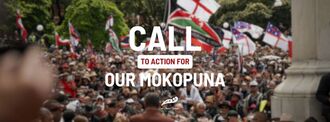.jpg)
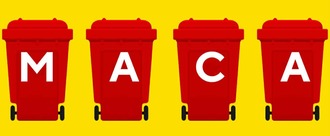
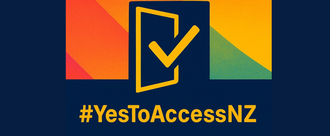
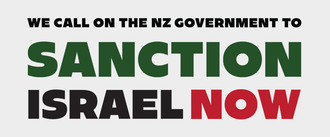

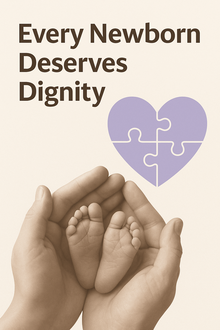
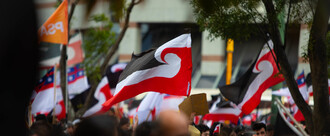
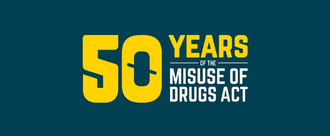
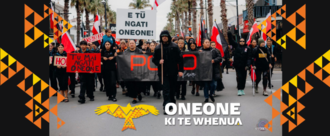.png)

